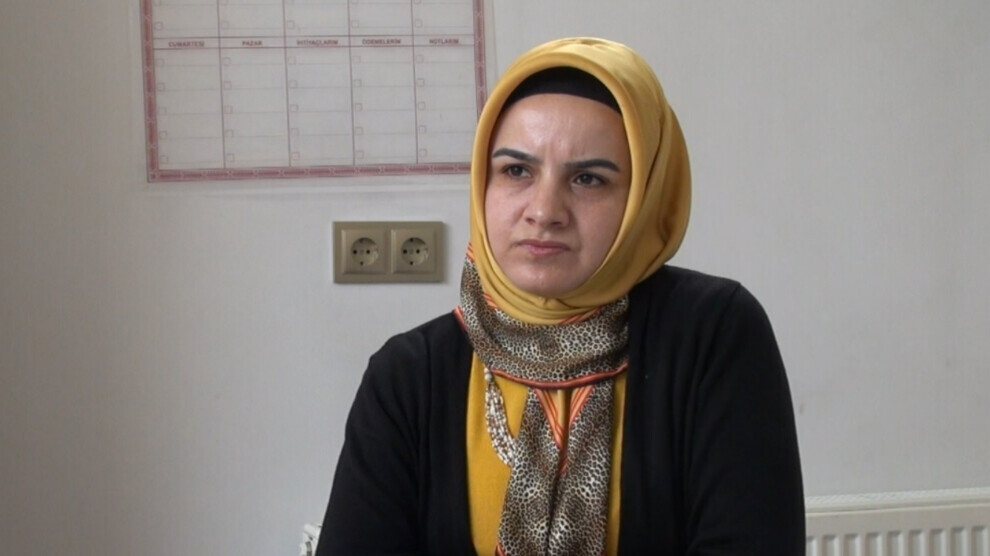Sociologist Bayar: Kurds are a decisive actor
Sociologist Seher Akçınar Bayar drew attention to the Kurdish movement and said, "It is a very decisive actor."
Sociologist Seher Akçınar Bayar drew attention to the Kurdish movement and said, "It is a very decisive actor."

Sociologist Seher Akçınar Bayar stated that despite all judicial and political pressures, Kurds kept their neighbourhoods strong and maintained their presence as a political actor, and added that the Kurds could definitely find a way out regardless of the amount and pace of the oppression.
With its systematic and dirty war policies, the Turkish state also enforces social, political, and cultural deterioration in Kurdistan.
Seher Akçınar Bayar, a sociologist, spoke to ANF about how this affected Kurdish sociology and how the Kurds kept their dynamism in the face of it all.
Bayar stated that social and other criminal policies do not progress on their own and that people's political, social, and cultural endeavours have been attacked as well.
ATTACKS ARE SYSTEMATICAL
Pointing out that the attacks against the Kurdish people continue systematically within a framework of a plan, Bayar continued as follows: “Armed conflicts, political repression, and social degeneration are all part of this process. In fact, we can see that they are consciously attempting to bring Kurdistan's society to its knees. There is a very active and politically aware people in the Kurdish area. For governments, breaking this consciousness is critical. Because the ability to interpret one's own truth and history is the first step toward social reform. Therefore, governments sometimes carry out this process with operational movements, armed forces, and other tools in order to suppress the people's consciousness.”
THE ATTACKS WERE THERE ALSO BEFORE 2015
Bayar said: “We can see the policies that have been enacted, particularly with regard to youth, children, and women. Because these are the most active parts of the Kurdish community. In 2008-2009, for example, the theme was ‘Children Throwing Stones’. These children were sentenced to 25 years in prison for throwing stones at any tank or police officer. When they examined the palms of children going down the street and determined that they had stone markings, they would arrest them right away. Such an attack on women, children, and young people is not something we don't expect from them therefore, it is reasonable to assert that the process of social degeneration did not begin in 2015. Social decay, political pressures, and military pressures were all carried out at the same time.”
INSTITUTIONS AND THE STREET FEED EACH OTHER
Stating that the state's policies of intimidation are not separate from each other, but only in some periods, some of them are applied more heavily, Bayar said: "Political actors have been imprisoned in the past, while the rest have been threatened by the courts. The Kurdish political arena, which includes civil society, bureaucracy, and political institutions, is, in my opinion, one of the structures that are fed by the Kurdish neighbourhoods. These structures' plans can also not be reviewed separately from the street. These institutions feed the occurrences on the street, and the street feeds the institutions. As a result, there is a lot of pressure on it. It's also crucial to consider how each Kurd will defend themselves against these forces. For example, I believe that recent demands for mother tongue and related initiatives, as well as individual studies, are important. Compared to the past, I believe that parents' petitions to schools to allow their children to attend Kurdish elective courses are important.”
KURDS MUST FIND A WAY OUT
Emphasizing that despite all judicial and political constraints, the Kurds should try to keep themselves strong and maintain their status as a political actor, Bayar said: “For example, the Respect and Justice for the Dead Initiative have been striving to institutionalize more and more recently, because we are still a culture that can't handle funerals as a result of present political demands. Consequently, despite several judicial and security barriers, the Kurds can undoubtedly construct places in which they can exist. Even in this political climate, Kurds are very good at following and evaluating current events. Regardless of the severity and frequency of tyranny, I believe the Kurds will find a way out of this chaos. We can see this when we look at history. This may be seen clearly in the general isolation process, as well as the prisoners in jails and the participants of Newroz.”
KURDS DEFINE TURKISH POLITICS
Underlining that the Kurds have always been a dynamic people and a subject that determines Turkey's politics, Bayar said: "The lack of Kurds from the opposition parties' positions demonstrates the Kurds' strength. Kurds are a powerful force in the region. The Turkish elections are a good example of this. There is no longer any such thing as an objectified Kurd. Even when the court, security, and voter suppression are used as puppets, the Kurds occupy a position that shapes Turkey's politics. In that sense, I don't by people asking, "Why isn't there?" when it comes to the mainstream Kurdish political movement's absence from opposition party tables. Because, in terms of Turkish politics, it is an expected conclusion.”
THE KURDISH ISSUE IS INTERNATIONAL
Reminding that the Kurds have elected independent deputies even in the most difficult times, Bayar added: “We're discussing the Kurdish movement that is rapidly urbanizing, publicizing, institutionalizing, and expanding. Turkey's Kurdish problem is no longer an internal political concern. It has evolved into a problem that affects four parties and has an international dimension. As a result, it is difficult for a Kurdish with an international dynamic to be unaffected by Turkish politics in its own backyard and the political atmosphere. As the mainstream Kurdish political movement, we must rethink our past methods, prioritize our assets, and ask ourselves, how can we get out of this situation?"